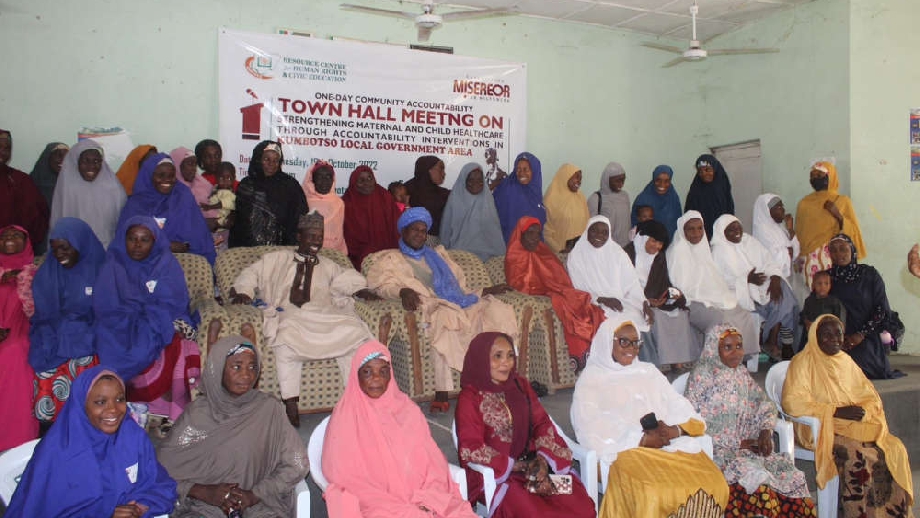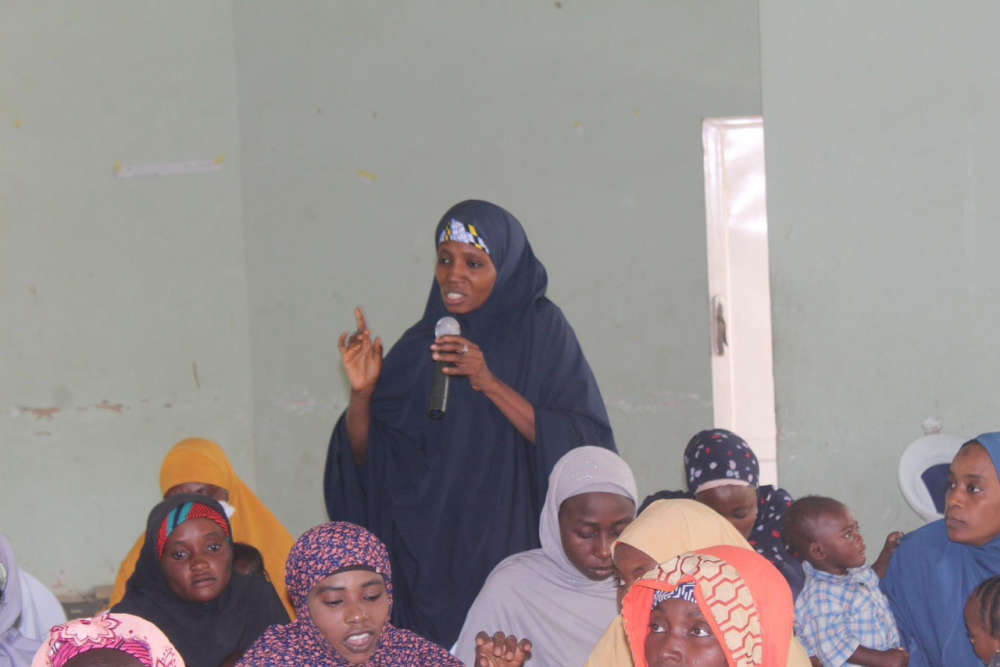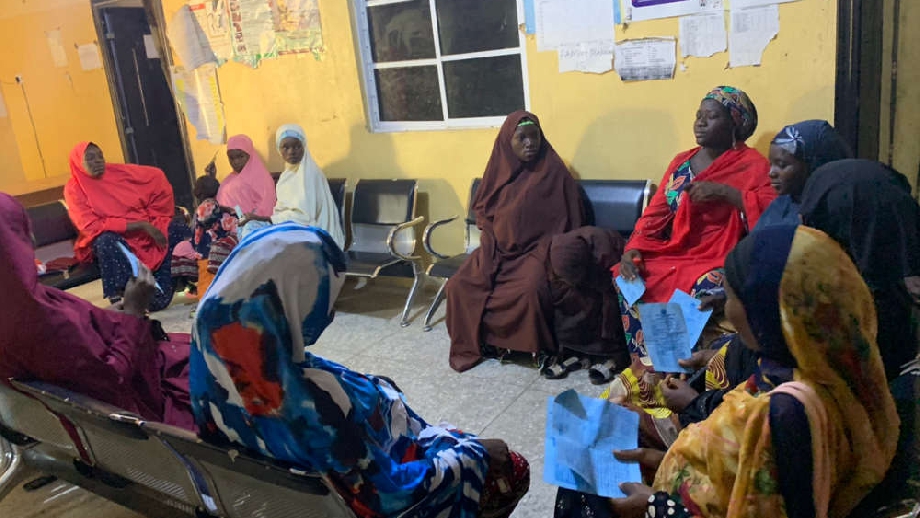
In 2010, a Kano-based couple, Gambo and Karimatuwere, was blessed with their first child, but the wife did not survive the complications she suffered after giving birth at home.
Gambo told our correspondent that the death could have been avoided if he had allowed his wife to access antenatal care.
“We grew up in a traditional setting, and if you said you are taking your wife to the hospital, you will be laughed at,” he said.
“I lost my first wife after she gave birth at home. During that period, I didn’t allow her to go for antenatal sessions.
“After she gave birth, she began to swell. We kept using traditional medicine. She died three months later, it was so painful.”
Gambo’s story is similar to that of Bashir Sulaiman, a resident of Kumbotso town who lost his younger sister during childbirth.
Bashir recalled that his sister was not allowed to attend antenatal sessions during her pregnancy.
“We experienced this challenge a lot here and it is because of our ignorance,” he said.
“This has led to the deaths of women in this community. A few years ago, I lost my younger sister as well. And it was really painful.”
Gambo and Bashir’s stories show what rural women face across Kano State.
This stereotype is however not unconnected to predominant traditions and the inadequacy of female gynecologists, while costs of health services, transportation, and lack of community awareness persistently affect the utilization of delivery services in hospitals.
50,000 Women Die Annually During Childbirth
The World Health Organisation (WHO) estimates that more than 50,000 women die during childbirth in Nigeria every year.
The data further shows that nearly 20 percent of all global maternal deaths occur in Nigeria.
According to UNICEF, Nigeria’s 40 million women of childbearing age (15 to 49) suffer a disproportionally high level of health issues surrounding birth due to a lack of access to healthcare services.
With an estimated population of 15 million (2016 Census), the Maternal Mortality Ratio in Kano is over 1,000 deaths per 100,000 births.
CHRICED's Intervention
In a bid to tackle the situation, a non-governmental organization, the Center for Human Rights and Civic Education (CHRICED) launched an outreach tagged “Strengthening Maternal and Child Healthcare through Accountability Interventions in Kumbotso and Gwale Local Government Areas of Kano State.”
The outreach featured health talks and sensitization on the importance of antenatal sessions. The outreach was aimed at reducing maternal and child mortality in the target local government areas by improving inclusion, transparency, and accountability in the planning and management of health budgets and programs.

The non-profit’s Programs Officer, Zuwaira Omar, said CHRICED has held more than 20 antenatal care outreaches in both local governments.
Zuwaira further said CHRICED has a weekly live program on a local radio station in Kano, ArewaRadio where it highlights the importance of antenatal care.
“We started the program in 2017, and we have so far held about 28 outreaches with traditional rulers, health care providers, and the community on the importance of antenatal care for pregnant mothers.
CHRICED has also trained 50 community leaders on how to track the usage of maternal health funding in the local government areas.
“We have trained about 50 monitors in Kumbotso and Gwale on how to monitor the utilization and implementation of funds budgeted for maternal health in the state. This will help in preventing needless maternal deaths in the state.
Impact of Outreach
Gambo, who is now enlightened, says his surviving wife never misses antenatal sessions.
“After the death of my wife, and the awareness by CHRICED on the importance of antenatal care, I started taking my wife for the antenatal session on my bike. After seeing the doctor, I will take her back home.”
I visited two health centers – the Kumbotso Comprehensive Health Centre and the Muhammad Gauyama Primary Health Care in Gwale – and noticed that more than 100 pregnant women were seated in the facilities, eagerly waiting for their turn.

One of them, Nazifa Umar says she never misses her antenatal sessions, thanks to the outreach by CHRICED.
“I started going to the outreach in 2019. Since then, I never miss my antenatal session. And I tried as much as possible to practice the advice given to me by the health workers during the session,” she enthused.
A community health worker at the Kumbotso Comprehensive Health Centre, Da’u Sulaiman, revealed that no fewer than 100 pregnant women now attend their weekly antenatal sessions.
“Following the outreach and awareness on the importance of antenatal care, over a hundred pregnant women visit our facility for the antenatal session, as against five years ago where we have ten or twenty women”.
Da’u further said residents in the community recently constituted a committee comprising community leaders in the area, and contribute money to assist indigent people who cannot pay for their wives’ antenatal care.
“We formed a committee in the community and every month we donate money. The money is usually used to assist people who cannot pay for an antenatal session for their wives,” she told me.
Da’u, however, identified the need for more gynecologists at the center.
“One of the major challenges in the facility is inadequate manpower. We are also experiencing inadequate facilities in the center,” he said.
In response, the Director of Family Health at Kano State Health Care Management Board, Dr. Aminu Sudawasaid the government recently employed 1,500 health workers to improve healthcare delivery in the state.
Dr. Sudawa further disclosed that 288 facilities are currently benefiting from the State’s free Maternal and Child Health Care Programme.
“And the state government budgeted N120 million for its Free Maternal and Child Health Care Programme. Presently, 288 facilities are benefiting from the program,” he clarified.
The WHO recommends a minimum of eight antenatal care (ANC) sessions for pregnant mothers before childbirth. It is therefore important to comply with the recommendation to reduce maternal and newborn deaths.
This story is supported by Nigeria Health Watch through the Solutions Journalism Network, a nonprofit organization dedicated to rigorous and compelling reporting about responses to social problems
visit: solutionsjournalism.org for more


